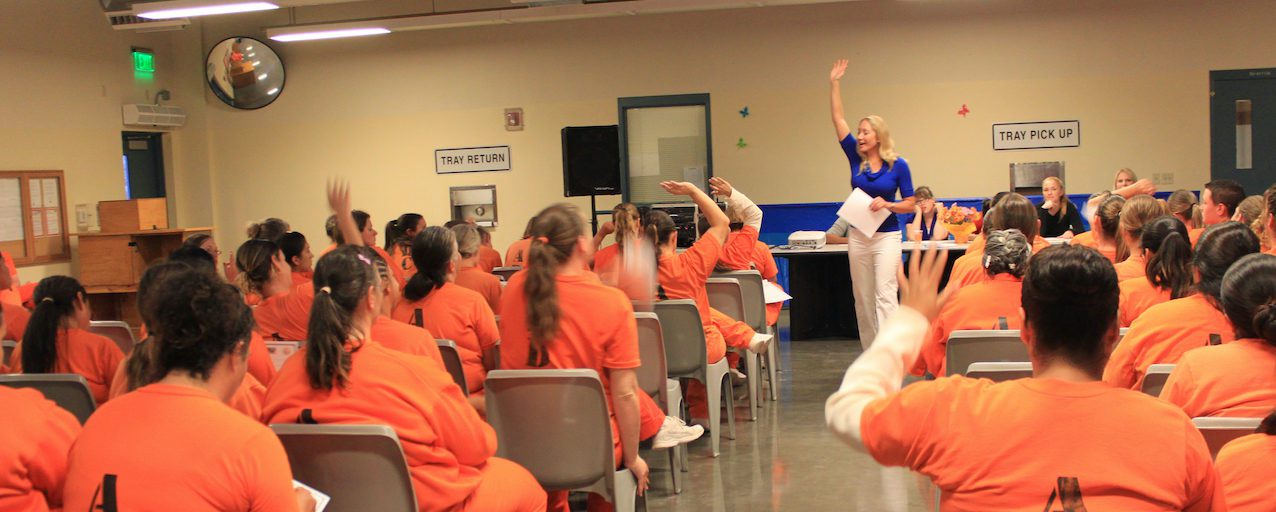
Amid Federal Funding Cuts, Here’s How the CSG Justice Center Can Help You Advance Safety and Justice
Every day, public safety depends on thousands of state and local leaders who work across agencies, systems, and levels of government to make communities safer. For two decades, federal resources allowed the CSG Justice Center to support those leaders free of charge with on-demand assistance and expert analysis to help fix broken parts of the system and implement proven solutions.
On April 22, much of that federal support was ended, along with other vital grants. We’re working with federal officials to help restore these critical resources.
In the meantime, we’re still here, ready to continue helping leaders advance safety and justice. Our team continues to deliver rigorous, objective, and nonpartisan solutions tailored to your needs. Please reach out to the following staff:
- Developing and assessing reentry and juvenile justice strategies:
Contact Susan Gottesfeld at sgottesfeld@csg.org - Redesigning how behavioral health and the justice system work together:
Contact Hallie Fader-Towe at hfader@csg.org - Using data to improve justice systems and reduce crime:
Contact Grace Beil Call at gcall@csg.org
If you have other questions about how we can help you, please contact jc-info@csg.org.
Governors emphasized a wide range of criminal justice and behavioral health initiatives in this year’s state-of-the-state addresses. From…
Read MoreCorrections leaders balance the complex priorities of maintaining public safety, operating secure facilities, providing needed care and services…
Read MoreThe CSG Justice Center is pleased to announce 5 new members of its advisory board. Hailing from states…
Read More State of the States: Criminal Justice and Behavioral Health Priorities in 2025
State of the States: Criminal Justice and Behavioral Health Priorities in 2025
Governors emphasized a wide range of criminal justice and behavioral health initiatives in this year’s state-of-the-state addresses. From Alaska to Washington, governors across the U.S. highlighted significant progress in reducing crime rates, combating the opioid crisis, and expanding mental health services. They also noted areas for improvement, some of which will be legislative priorities in 2025.
Read More Apply Now for Resident Analyst Program to Increase Data Analysis Capacity at Departments of Corrections
Apply Now for Resident Analyst Program to Increase Data Analysis Capacity at Departments of Corrections
Corrections leaders balance the complex priorities of maintaining public safety, operating secure facilities, providing needed care and services to the incarcerated population, and coordinating with other agencies.
Read More Five New CSG Justice Center Board Members Look to Strengthen Communities and Improve Public Safety
Five New CSG Justice Center Board Members Look to Strengthen Communities and Improve Public Safety
The CSG Justice Center is pleased to announce 5 new members of its advisory board. Hailing from states across the country and representing multiple professions, they are all eager to join the 17 current members in establishing the policy and project priorities for the organization.
Read More Removing Barriers to Successful Reentry: Q&A with New CSG Justice Center Advisory Board Member Dr. Ronald F. Day
Removing Barriers to Successful Reentry: Q&A with New CSG Justice Center Advisory Board Member Dr. Ronald F. Day
The CSG Justice Center Advisory Board establishes the policy and project priorities of the organization. The board features a cross-section of leaders who shape criminal justice policy in various parts of the country.
Read More Transforming Lives with Access to Needed Mental Health Care: Q&A with New CSG Justice Center Advisory Board Member Dr. Courtney Harvey
Transforming Lives with Access to Needed Mental Health Care: Q&A with New CSG Justice Center Advisory Board Member Dr. Courtney Harvey
The CSG Justice Center Advisory Board establishes the policy and project priorities of the organization. The board features a cross-section of leaders who shape criminal justice policy in various parts of the country.
Read More Six States Commit to Improving Statewide Strategies to Address Youth Crime, Violence and Behavioral Health
Six States Commit to Improving Statewide Strategies to Address Youth Crime, Violence and Behavioral Health
The Council of State Governments (CSG) Justice Center has launched the Collaborating for Youth and Public Safety Initiative (CYPSI) in partnership with six states: California, New Mexico, New York, Ohio, Oklahoma, and Rhode Island. The initiative will help states develop, fund, and effectively implement a research-based service continuum to improve public safety and behavioral health, education, and other outcomes for youth.
Read More









